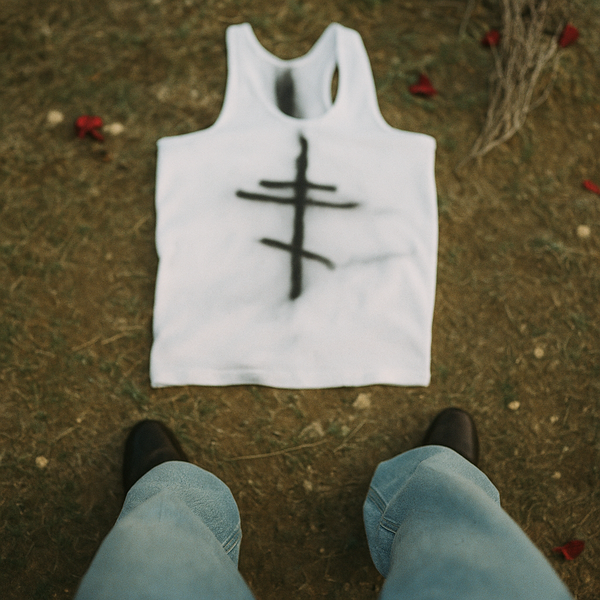Kid Rock, Pearl Jam, and the Ticketmaster Showdown: Who's Really Listening?

The Federal Trade Commission just dropped a lawsuit on Live Nation and Ticketmaster that reads like a greatest hits album of corporate bullshit. Hidden junk fees, secret deals with scalpers, artists getting screwed while fans get fleeced—it's the same song the live music industry's been playing since grunge was young. But here's the kicker: the two artists who've been screaming about this racket the longest, Pearl Jam and Kid Rock, couldn't be more different. One's Seattle royalty, the other's Detroit trailer park made good. Yet somehow they've both ended up on the same side of the barricades, which tells you everything you need to know about how deep this rot goes.
The FTC's September 2025 lawsuit, joined by seven state attorneys general—Colorado, Florida, Illinois, Nebraska, Tennessee, Utah, and Virginia- accuses Live Nation and Ticketmaster of running what amounts to a protection racket in platform shoes. They're allegedly hiding mandatory fees that range from 24% to 44% of ticket prices, with specific examples showing increases of 30% or more, then acting shocked when fans show up at the box office with torches and pitchforks. The complaint details how these companies supposedly deceive artists about ticket availability while cutting side deals with professional scalpers through their resale platforms. It's like finding out the bouncer at your favorite dive bar has been selling your spot in line to the highest bidder while telling the band nobody showed up.
This isn't just corporate malfeasance—it's a betrayal of the fundamental contract between artists and audiences. When a band announces a $50 ticket, and fans end up paying $80 after mysterious "convenience" and "service" fees materialize at checkout, that's not capitalism, it's a con game. The FTC claims Ticketmaster's been pulling this three-card Monte routine while telling artists their tickets aren't selling, then funneling those same tickets to resellers who mark them up another 50%. It's enough to make you nostalgic for the honest corruption of old-school scalpers working the venue sidewalks.
Pearl Jam saw this coming back in 1994, when flannel was still a fashion statement and not vintage wear. They tried to bypass Ticketmaster entirely for their Vs. tour, setting up their own ticketing system and testifying before Congress about monopolistic practices. The band wanted to keep ticket prices at $18—imagine that now—but Ticketmaster's stranglehold on venues made it impossible. Jeff Ament and Stone Gossard sat in front of congressional committees looking like they'd rather be anywhere else, explaining how a company that was supposed to be a service provider had become the gatekeeper to live music. They lost that fight, had to cancel shows, and eventually had to work with the beast they'd tried to slay.
Kid Rock took a different swing at the same piñata. In 2013, he launched his $20 ticket rebellion, partnering with Live Nation—yes, the same Live Nation—to offer cheap seats, $20 t-shirts, and $4 beers. He took pay cuts, demanded venues cap concession prices, and basically tried to run concerts like they were still happening in 1978. "I make money off selling records," he said at the time, which already tells you this was a different era. But here's what matters: even working with Live Nation, even trying to game the system from the inside, he still couldn't break the fundamental economics that turn a night out into a mortgage payment.
The beautiful irony here is that Pearl Jam and Kid Rock—who agree on approximately nothing else in the known universe—both identified the same cancer eating live music. One's from Seattle's coffee shops, the other's from Detroit's shot-and-beer joints, but they both know what it feels like when corporate middlemen insert themselves between artists and fans like toll collectors on the highway to rock and roll heaven.
What the FTC's lawsuit reveals is that neither approach worked because the game was rigged from the start. According to the complaint, Live Nation controls 265 venues across North America and manages more than 400 artists. They promote concerts, sell tickets, and run the resale market. It's vertical integration that would make the old robber barons weep with envy. When one company controls the venue, the ticketing, and the promotion, artists have about as much negotiating power as a garage band trying to get a gig at Madison Square Garden.
The lawsuit details how fees get buried in the purchase process, appearing only after customers enter their payment information—what is often called "drip pricing." It's the digital equivalent of a bar that doesn't tell you drinks are $30 until after you've ordered your third round. The commission also alleges that Ticketmaster's resale platform, TradeDesk, a platform available only to high-volume brokers, gives professional scalpers tools and access that regular fans don't get, essentially creating a two-tier system where actual music lovers are second-class citizens in their own scene.
This matters because live music isn't just commerce—it's communion. It's where songs become memories, where strangers become friends, where three chords and the truth can still change your life on a Tuesday night. When that experience gets locked behind paywalls and fee structures that would make a loan shark blush, something essential dies. The kids who should be discovering their new favorite band at a dingy club are priced out, while hedge fund bros buy up floor seats they'll never use.
The states joining the FTC—including Utah, Virginia, and others—aren't exactly known as hotbeds of anti-corporate activism. When Utah's consumer protection division is calling you out for "deceptive and unfair business practices," you know you've crossed a line. These aren't Bernie Sanders rallies; these are states where the free market is gospel. But even they recognize that what's happening isn't capitalism—it's corporate feudalism with electric guitars.
The September 2025 FTC lawsuit seeks injunctive relief, civil penalties, and monetary restitution to consumers. A separate May 2024 DOJ antitrust lawsuit seeks to force Live Nation to divest Ticketmaster. In English, that means breaking up the band and giving fans their money back. Whether that happens or this ends up another verse in the long ballad of corporate accountability theater remains to be seen.
But here's what I know from covering this beat since vinyl was the only option: music finds a way. When the industry gets too corrupt, too expensive, too corporate, the real stuff goes underground. It happened with punk, with indie rock, with hip-hop. Right now, in some garage in Detroit or basement in Seattle, kids are figuring out how to route around this damage, how to connect with audiences without paying the toll.
The tragedy is that it shouldn't require a federal lawsuit to ensure that a working-class kid can afford to see their favorite band. Pearl Jam knew it in 1994, Kid Rock knew it in 2013, and the FTC finally knows it in 2025. The question isn't whether Live Nation and Ticketmaster have been playing fans and artists for suckers—the evidence is overwhelming. The question is whether anyone with power actually gives a damn about fixing it, or if this is just another show where the house always wins.
Until then, support your local venues, buy merch directly from bands, and remember that the best music you'll ever hear probably isn't happening in an arena with dynamic pricing. It's happening in a dive bar where the door guy still takes cash and nobody's heard of convenience fees. That's where rock and roll lives, and that's where it'll outlast whatever corporate chimera currently controls the mainstream circuit. The music doesn't need Ticketmaster. Never did, never will.
References
- https://www.ftc.gov/news-events/news/press-releases/2025/09/ftc-sues-live-nation-ticketmaster-engaging-illegal-ticket-resale-tactics-deceiving-artists-consumers
- https://apnews.com/article/16e87186902b029f2a4fda5334f12baf
- https://www.upi.com/Top_News/US/2025/09/18/ticketmaster-live-nation-lawsuit/1161758218543
- https://www.tpr.org/economy-and-labor/2025-09-18/ftc-sues-live-nation-and-ticketmaster-alleging-illegal-resale-tactics
- https://www.cnbc.com/2025/09/18/ftc-ticketmaster-live-nation-ticket-resales.html
- https://www.wusf.org/2025-09-18/ftc-sues-live-nation-and-ticketmaster-alleging-illegal-resale-tactics
- https://www.alston.com/en/insights/publications/2025/09/ftc-state-lawsuit-live-nation-ticketmaster
- https://www.kpbs.org/news/2025/09/18/ftc-sues-live-nation-and-ticketmaster-alleging-illegal-resale-tactics
- https://dcp.utah.gov/2025/09/18/utah-and-the-ftc-sue-live-nation-and-ticketmaster-for-deceptiely-hiding-ticket-fees
- https://www.lemonde.fr/economie/article/2024/05/24/le-geant-des-concerts-live-nation-attaque-pour-pratiques-anticoncurrentielles_6235308_3234.html
- https://www.live5news.com/2025/09/18/ftc-sues-ticketmaster-live-nation-over-deceptive-pricing-resale-tactics
- https://www.stereogum.com/2325814/kid-rock-urges-political-adversaries-pearl-jam-to-support-ftcs-live-nation-ticketmaster-lawsuit/news
Models used: gpt-4.1, claude-opus-4-1-20250805, gpt-4o, gpt-image-1




